Explore Online Substance Abuse Counseling Degree Programs for 2024. Compare degrees, schools, career paths, and salaries.

Addiction can wreck a person’s life, but the right interventions may be able to turn things around. As a substance abuse counselor, you can make this difference for people in crisis.
Editorial Listing ShortCode:
As instances of chemical dependency and other addictions grow, job openings for substance abuse counselors increase as well. Online drug and alcohol counseling programs can help meet the need for trained professionals.
Helping others through addiction and recovery can be challenging but many find it rewarding, and your involvement may mean the difference between life and death for people in need.
Online schools for substance abuse counseling offer bachelor, master, and doctoral levels. A growing number also offer online addiction counseling certificate programs. In graduate certificate programs, you can build upon the knowledge you’ve learned in a bachelors or masters program.
Each of these programs can help prepare you to change lives through counseling.
Online Substance Abuse Counseling Degrees
Select your education level and area of interest below:
Bachelor’s:
- Applied Behavioral Science
- Human Services
- Psychology – Addictions & Recovery
- Psychology – Clinical & Counseling Psychology
Master’s:
Doctorate:
You don’t necessarily need a bachelor’s degree in a related field to enter a master’s program in addictions, but if you do, you might qualify for accelerated programs.
Bachelor’s of Applied Behavioral Science
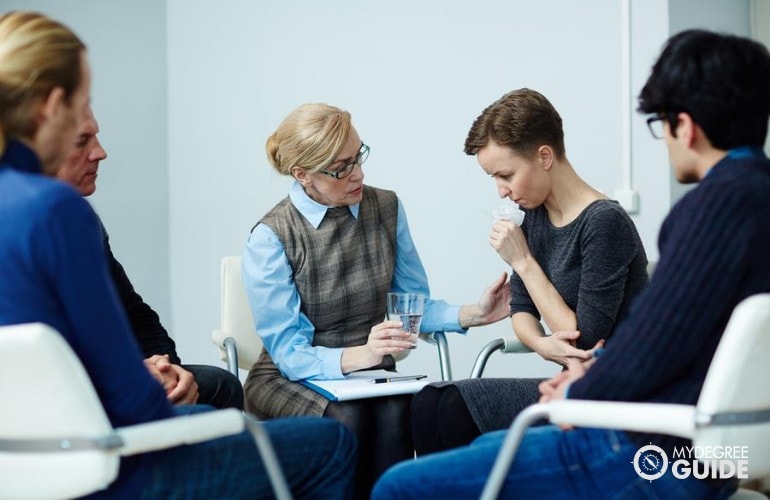
If you’re interested in learning about the many factors that influence people’s addictive behaviors and recovery processes, consider studying applied behavioral science.
Because behavior is not one-dimensional, behavioral science explores a variety of related disciplines, such as psychology, communications, and criminal justice.
Editorial Listing ShortCode:
Classes may include Human Development Through the Lifespan, Introduction to Mental Health, Conflict Resolution, and Cognitive Psychology.
With this degree, you might work with youth or adults with substance abuse disorders. Potential settings include community agencies, law enforcement departments, rehabilitation programs, or government health departments.
Another option would be to provide family support for those who have a loved one struggling with addictions.
Bachelor’s in Human Services

Many people with substance abuse disorders rely on the intervention of community agencies. A human services program can help you learn more about these systems and the support they can offer.
The courses in your program may include Lifespan Human Development, Principles of Case Management and Trauma Intervention.
Editorial Listing ShortCode:
After graduation, you might enroll in a master’s program, provide direct services to people in need, or be responsible for administrative duties in a human services setting.
Possible positions relating to substance abuse counseling include working in a group home or serving as a liaison for the juvenile court system.
Bachelor’s in Psychology – Addictions & Recovery

Earning an undergraduate degree in psychology can help you understand more about how people think and how those thoughts influence their behavior.
A concentration in addictions can allow you opportunities to take classes that apply those psychological principles to the practice of helping people break free from their substance use disorders.
Editorial Listing ShortCode:
Your courses may include Abnormal Psychology, Addiction Recovery, and Theories of Substance Abuse Treatment.
Although you won’t be ready for clinical licensure after completing this degree program, you may be able to practice as a substance abuse counselor in supervised settings. You might find employment with a rehabilitation facility or a mental health organization.
Bachelor’s in Psychology – Clinical & Counseling Psychology

A counseling degree program can help you learn how to use psychological principles to guide people toward healthier choices.
Classes like Introduction to Psychology, Cognitive Psychology, and Personality Theory can help you become more knowledgeable about human thought and behavior.
Editorial Listing ShortCode:
Other classes, such as Crisis Intervention, Group Counseling, and Case Management can help equip you with specific counseling skills that you can use when working with people in treatment and recovery settings.
This degree program can help you pursue a supervised counseling position in an addiction treatment program. You might serve as a social worker or seek employment with a human services program that’s geared toward helping people with addictions.
Master’s in Addiction Studies

If your goal is to become a clinically licensed substance abuse disorder counselor, an online master’s degree in addiction counseling can help you get there.
Degree programs in addiction studies give students the opportunity to complete in-depth studies related to the addiction process and methods of providing treatment for chemical dependency.
Editorial Listing ShortCode:
Sample courses may include Addiction and the Family, Counseling for Substance Abuse Treatment, and Co-occurring Disorders.
Your degree completion program may fulfill the educational requirements of your state’s licensure board. After becoming licensed, you can pursue work in a clinical setting to provide counseling services for people with chemical dependency or other addictions.
Your scope of expertise may include helping people who have co-occurring trauma or mental health issues.
Master’s in Counseling – Addictions & Recovery

A degree in counseling can help equip you with the knowledge of human behavior needed to help others modify their choices and improve their lives.
Your classes may include Biological Foundations of Addiction, Counseling Ethics, and Clinical Assessments.
Editorial Listing ShortCode:
Not all master’s in counseling programs are licensing tracks; if you plan to become a clinical substance abuse counselor, make sure that the program meets the requirements for your state.
After program completion, your licensure status will influence the setting where you work, but you may find employment with a mental health agency, a residential facility, a human services organization, or a correctional facility.
Master’s in Psychology – Addictions

For a non-licensure master’s program relating to substance or addiction counseling, consider earning your master’s in psychology with a specialization in addictions.
This program focuses on understanding how addictions develop and implementing effective treatment plans.
Editorial Listing ShortCode:
The courses may include Motivation and Human Behavior, Psychology Research, and Interventions for Substance Abuse.
You may use a master’s in psychology degree to work one-on-one with people with addictions and their families in non-licensure settings. You might also supervise case managers or social workers in a mental health or rehabilitation facility.
Some graduates pursue research positions to make new discoveries about addiction treatment.
Master’s in Social Work
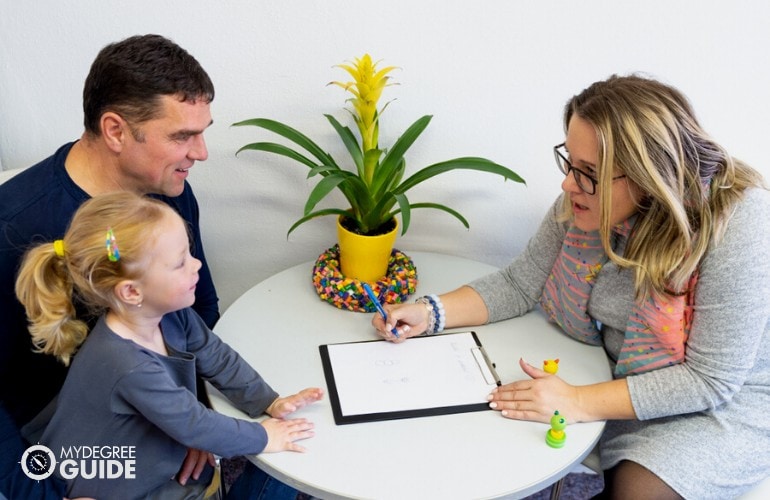
A master’s in social work can help prepare you to provide counseling services for many people, including those with substance use disorders. This degree program may prepare you for licensure in your state.
You may take classes like Human Lifespan Development, Social Justice, and Working with Individuals and Families. You will probably need to complete a practicum experience.
Editorial Listing ShortCode:
Licensed clinical social workers often work with people who have addictions.
Other groups to consider working with include at-risk youth, the homeless, and people with mental health disorders. You may find high rates of substance use and addiction among these populations.
Your work setting may be a private practice, a hospital, or a rehab center.
Doctorate in Behavior Analysis

To become a top expert in applied behavior analysis, you’ll need to earn a doctoral degree. Studies for this degree typically include advanced classes in psychology and behavior analysis and guidance on how to conduct research in this field.
Your course sequence may include Interventions for Behavior Change and Experimental Design in Behavior Analysis.
Editorial Listing ShortCode:
With a doctoral degree, you may be able to pursue licensure as a clinical psychologist; your specialization might be chemical dependencies or behavioral addictions.
You might also conduct original research that will help other addiction counselors, or you might teach psychology or substance abuse counseling at the postsecondary level.
Doctorate in Psychology

Getting a doctoral degree in psychology is another path to becoming licensed as a clinical psychologist, but not all psychology tracks lead to licensure.
Whether you choose a licensure or non-licensure approach, you may take classes like Assessments and Measurements, Personality Science, and Development Through the Lifespan. You may also need to earn practicum hours, especially for licensure tracks.
Editorial Listing ShortCode:
Your career plans after completing this doctoral degree will depend on whether you decide to get licensed. As a licensed practitioner, you might provide one-on-one psychological services for those with addictions.
With a non-licensure degree, you might work in academia, policymaking or non-profit leadership. You might also become a researcher who develops new theories about addiction and recovery.
Doctorate in Social Psychology

People’s environment and upbringing may influence the development of their addictions. To explore the relationship between social factors and substance use, consider working toward a doctoral degree in social psychology.
Social Cognitive Processing, Surveys and Questionnaires, and Influence of Culture are some of the courses that may be required for this doctoral program.
Editorial Listing ShortCode:
As a social psychologist, you may study how social influences play into addiction, the ways that group dynamics help or hinder the recovery process, or what attitudes society displays toward people with substance abuse disorders.
People with this degree often conduct surveys and carry out other research. Alternatively, you might lead mental health organizations, become a psychology professor, or serve as a public relations specialist for a drug treatment facility.
How to Become a Substance Abuse Counselor

People with addictions and substance use disorders need the help of trained professionals to overcome their reliance on drugs or alcohol. The more education you gain, the more help you should be able to provide.
Your studies can help you learn the dangers and effects of abusing various substances and become skilled at adjusting each person’s counseling to suit his or her particular needs and circumstances.
5 Steps to Become a Substance Abuse Counselor
- Get a high school diploma or GED.
- Earn a bachelor’s degree in a related field.
- Continue your education by earning a master’s or doctorate.
- Work under the direction of others to accrue the necessary clinical hours.
- Take your licensing exam.
Although you may be able to get an entry-level job in this field without any higher education, advancing and practicing independently will likely require college degrees. The exact level of training that you will need may depend on your state and the setting in which you practice.
As a general rule, becoming a substance use counselor will require a bachelor’s degree in addictions, counseling, behavioral science or a related field. Then, to become a clinical substance use disorder counselor, you’ll probably need to earn a master’s degree or a doctorate, accrue clinical hours, and pass a licensing exam.
Even after becoming clinically licensed, your education in this field will probably need to continue. Most states require clinical substance use disorder counselors to earn continuing education credits to keep their licenses up to date.
Substance Abuse Counseling Careers and Salaries
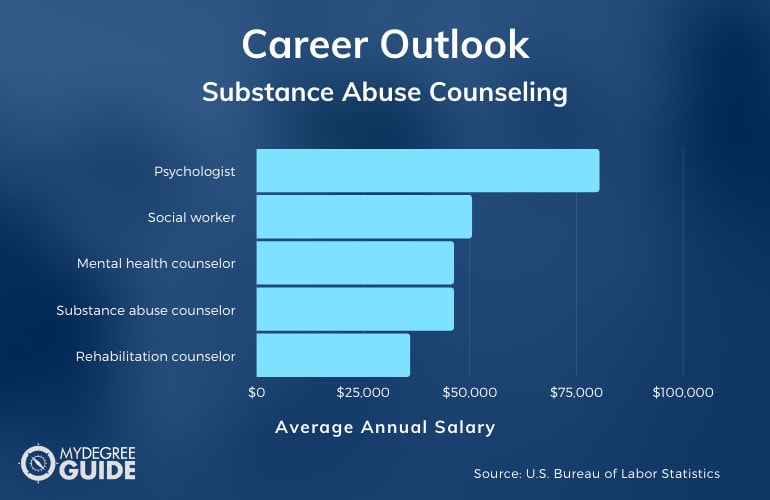
You’re probably interested in becoming a substance abuse counselor because you’re passionate about helping people overcome their addictions and succeed with recovery.
The U.S. Bureau of Labor Statistics shows a number of job titles that should give you that opportunity. The career option that you choose may depend on your personal interests and your level of education.
- Mental health counselor: People with anxiety, depression and other mental health disorders may rely on the help of mental health counselors. Often, there are co-occurring issues, such as addiction, involved. The average salary for this job is $46,240 each year. A bachelor’s degree may allow you to work as a technician or an assistant, but you’ll need at least a master’s degree for clinical licensure.
- Psychologist: People with serious mental health or substance abuse issues need to work with a licensed psychologist. Becoming a clinical psychologist requires a doctoral degree. Professional psychologists earn about $80,370 annually, and jobs are growing at a rate of about 3%.
- Rehabilitation counselor: Rehabilitation counselors help people in recovery get back on their feet and live independently. You may need a master’s degree for this job. The average salary for this career is $35,950 each year. Positions are expected to increase at a 10% rate.
- Social worker: Becoming a social worker can help put you in a position to help people with their substance abuse problems. Many roles are open to those with bachelor’s degrees, but a master’s degree is necessary for becoming a licensed clinical social worker. This field is expected to grow at a 13% rate and pays on average about $50,470 annually.
- Substance abuse counselor: Addiction counselors focus their counseling skills specifically on helping people work through substance use disorders. This field has a projected growth rate of 25%, and people earn on average about $46,240 each year. A bachelor’s degree may be sufficient for entry-level positions, but clinical licensure requires graduate studies.
You might also make a difference in addiction treatment by becoming a researcher, an agency administrator, or a professor.
Substance Abuse Professional Organizations

Joining a professional organization can help you connect to others who work in this field.
Consider joining one of the following associations:
- American Counseling Association: Substance abuse and mental health counselors can join this organization for professional development and the opportunity to purchase insurance.
- Association for Addiction Professionals: Also known as NAADAC, this organization is open to anyone who works in the addiction field; this includes social workers, counselors, and educators.
- International Association of Addiction and Offender Counselors: Becoming a member of IAAOC can help you stay current on industry developments through online training sessions and publications.
To enhance your college education, consider joining a professional organization while in school.
Accreditation
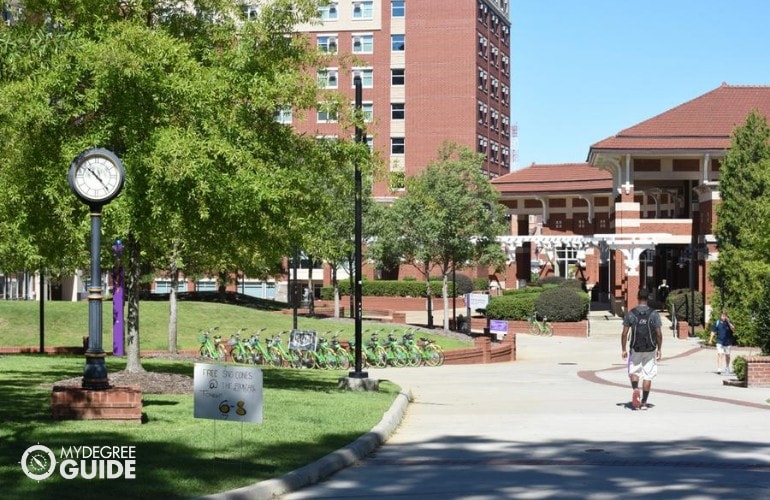
Your substance abuse counseling school should hold regional accreditation from one of the country’s main regional accreditors.
These include the following bodies:
- Higher Learning Commission (HLC)
- Middle States Commission on Higher Education (MSCHE)
- New England Commission of Higher Education (NECHE)
- Northwest Commission on Colleges and Universities (NWCCU)
- Southern Association of Colleges and Schools Commission on Colleges (SACSCOC)
- WASC Senior College and University Commission (WSCUC)
This type of accreditation is the first and most important mark of a quality school.
If you’re pursuing a graduate degree in substance abuse counseling, it’s a good idea to look for programmatic accreditation as well. This distinction shows that a particular program meets the standards of the industry.
One of the primary programmatic accreditors for this field is the Council for Accreditation of Counseling and Related Educational Programs (CACREP). Certification from the American Psychological Association Commission on Accreditation can be important for those seeking licensure.
Financial Aid

Don’t let tuition costs deter you from earning a substance abuse counseling degree. A variety of financial aid options can help you fund your schooling.
Your financial aid package may include:
- Government grants
- Government loans
- Federal Work-Study
- Private loans
- Scholarships — need-based or merit-based
- Fellowships
To learn more about your qualifications for government aid, complete the Free Application for Federal Student Aid (FAFSA). You can look for additional aid, such as scholarships, from your university or private organizations.
How Do You Get a Degree in Addiction Counseling?

To become an addiction counselor, you should first earn a bachelor’s degree in psychology or a related field.
After graduating and obtaining state certification, you should be able to start working in an entry-level position.
Alternatively, you might pursue clinical licensure through an addictions or counseling master’s degree program.
What Does It Take to Become an Addiction Counselor?
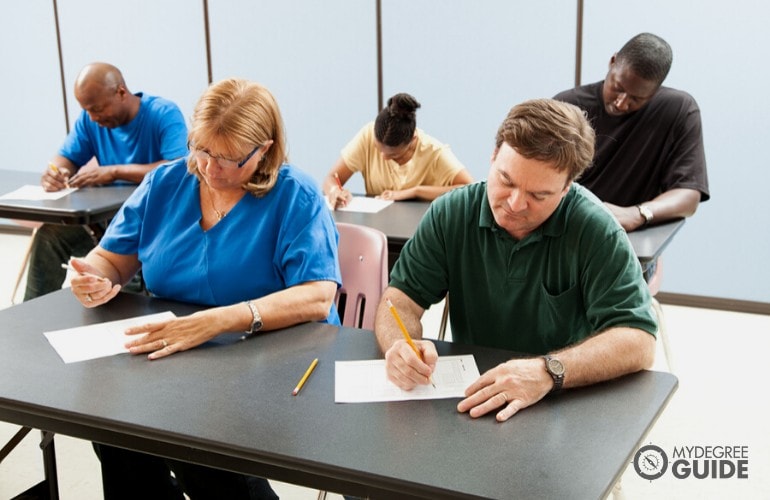
If you want to move beyond assistant positions in addiction counseling, you’ll need at least a 4-year degree and may need state certification.
For example, you can earn a bachelor’s in addiction counseling, or a related field. Becoming a clinically licensed professional requires admission into a graduate degree program. This often requires taking the GRE exam, but some schools no longer require the GRE for admission.
In addition to the regular course you complete as part of your graduate degree, you will probably be required to complete practicum hours and a licensing exam. Clinical psychologists need a doctorate in counseling or a related field.
How Long Does It Take to Become an Addiction Counselor?

Many addiction counseling positions are open to people with a bachelor’s degree, which can usually be earned in about four years.
For clinical licensure, you’ll need a master’s degree, which may take another two years. You’ll likely need to accumulate around 2,000 hours in supervised practicums as well.
Schools Offering Online Substance Abuse Counseling Degree Programs
We chose these schools because they offer online addiction counseling degrees in the field of substance abuse counseling, have a convenient online learning platform, and are accredited by a recognized agency.
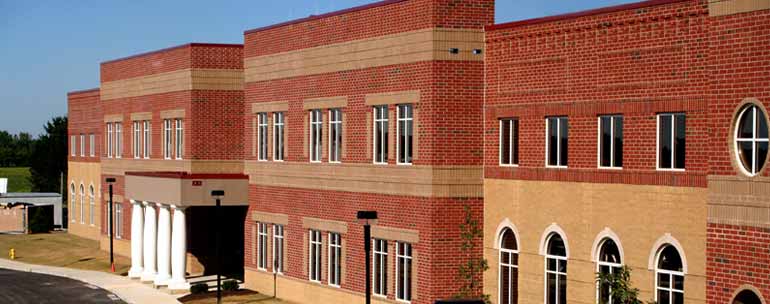
Antioch University was founded in 1852 in Ohio. It was first known as Antioch College and has changed its names to Antioch University when it extended its operations beyond the college and beyond the state in 1977. It now has 5 campuses in 4 different states.
They offer flexible programs online and on-campus. Their online programs allow students to transfer up to 75 credits, which can come from any accredited institution, toward their online bachelor’s degree. Students can also expect excellent support, high academic excellence, and student-centered learning.
- Bachelor’s in Human Services Administration
Antioch has maintained continuous accreditation by the Higher Learning Commission since 1927.
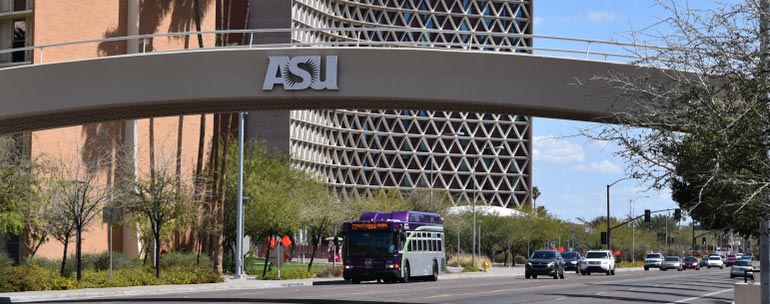
Arizona State University was founded in 1886, even before Arizona was granted statehood.
From its humble beginnings (starting with only 33 students), ASU has grown in excellence all through the decades and was given the recognition of being the ‘Most Innovative University’ in the country by US News and World Report for three consecutive years.
Not only that, ASU is recognized internationally as a top-ranked university that puts its focus on making solutions to society’s greatest challenges and providing a better opportunity for all.
- Master’s in Social Work
ASU is accredited by the Higher Learning Commission of the North Central Association of Schools and Colleges.
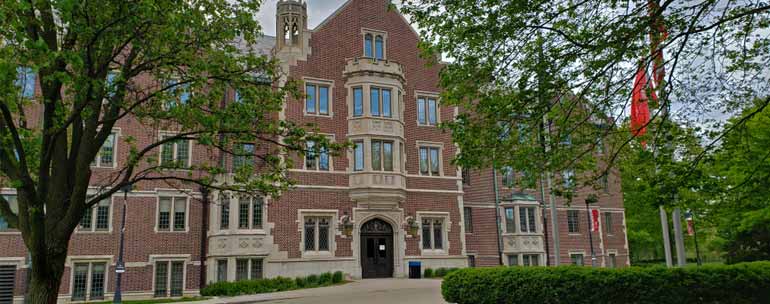
Ball State University is a public research university with its main campus located in Muncie, Indiana. It also has 2 satellite locations in Fishers and Indianapolis. It was established in 1918 by the Ball brothers, who also founded the Ball Corporation.
The university’s faculty and staff are highly professional and are experts in their field. Everyone in the community is expected to treat students as partners in learning, challenging each other to excel. The university’s mission is to engage students in educational endeavors and research that empowers graduates to have fulfilling careers and meaningful lives.
- Bachelor’s in Applied Behavior Analysis
Ball State‘s continuing institutional accreditation by the Higher Learning Commission was reaffirmed on January 14, 2014, following a two-year self-study process. The university is now accredited through the 2023–24 school year.
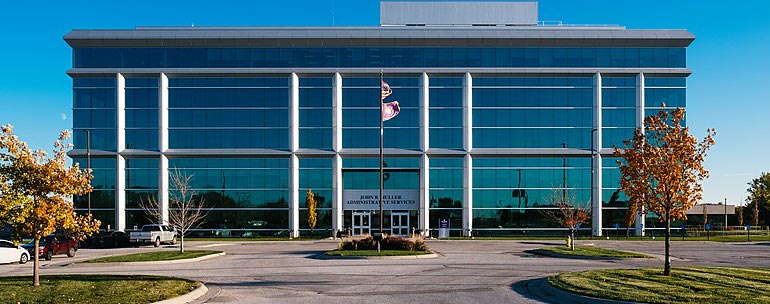
Bellevue University was founded in 1966 as a non-profit institution. Over the years, it has produced more than 50,000 successful graduates all over the world.
The university strives to provide affordable high-quality education with the aim of preparing its learners for lifelong learning and give them confidence in showcasing their skills to future employers. The values they uphold include integrity, innovation, belief in the transformational value of education, and student-centered learning.
They also provide excellent support for students, such as academic advising, career services, health and well-being support, disability assistance, and international support for foreign students.
- Bachelor’s in Behavioral Science
Bellevue is regionally accredited by the Higher Learning Commission (HLC).

Bethel University has been a leader in delivering quality higher education since 1871. At Bethel, excellence goes beyond high academic standards. It means integrating faith in Christ into every learning, so they strive to accomplish great things for God’s glory and the people’s good.
They offer courses in undergraduate, graduate, adult undergraduate, and seminary programs. With the university’s BUILD program, students with different backgrounds and abilities are given support to help them achieve their academic and personal goals.
- Bachelor’s in Behavioral and Social Science
- Master’s in Counseling – Addictions Counseling
Bethel University is regionally accredited by the Higher Learning Commission.

California Southern University is a private university which was established in 1978. They offer 100% online programs for busy, working adults who want to pursue their studies and upgrade their career. They have rigorous and robust academic programs that reflect the needs and latest trends of the modern industry and society.
As a global online institution, CalSouthern aims to prepare learners to succeed in the world. To achieve this, students are engaged in active learning, with respect to diversity and intellectual freedom.
- Master’s in Psychology – Advanced Addiction Studies
CalSouthern is accredited by the WASC Senior College and University Commission.
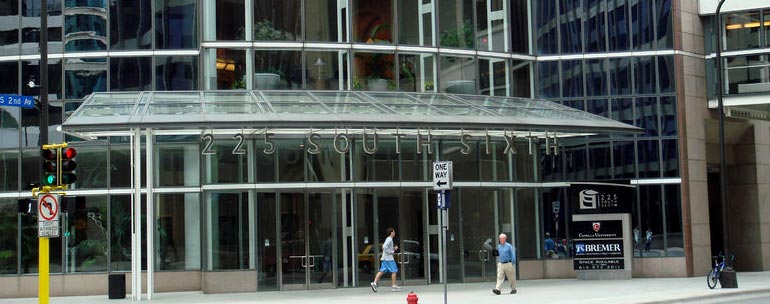
Although based in Minneapolis, Capella University specializes in offering the online-based and long-distance program.
They are a part of Strategic Education, Inc., and their ties with this publicly traded company have allowed them to recruit a very large and diverse student body: they have over 38,000 students hailing from 61 different countries.
Their vast catalog includes undergraduate, master’s, and doctorate programs alike. As they were established in 1993, this is an institution that can pride itself on being a product of the modern, globalized world.
- Doctorate in Psychology – Behavior Analysis
- Master’s in Addiction Studies
- Master’s in Social Work
Capella is accredited by the Higher Learning Commission.
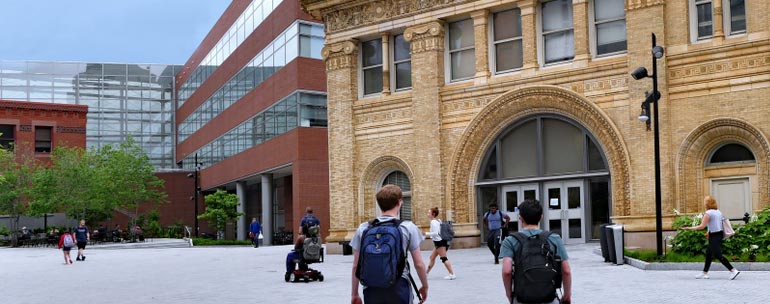
Drexel University is a private research university located in Philadelphia, Pennsylvania. It was founded by the philanthropist and financier, Anthony J. Drexel, in 1891.
The university offers over 70 undergraduate programs, and more than 100 postgraduate and professional programs. One of the prominent aspects of Dexel’s educational programs is the Cooperative Education. It allows students to gain up to 18 months of paid, full-time work experience in a relevant field.
Drexel strives to produce leaders equipped with the vision to address the challenges of the future in this ever-changing world.
- Bachelor’s in Behavioral Health Counseling
- Master’s in Addictions Counseling
- Master’s in Applied Behavior Analysis
Drexel is regionally accredited by the Middle States Commission on Higher Education (MSCHE).
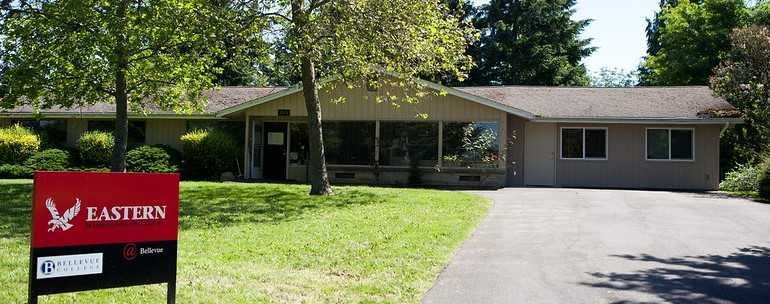
Eastern Washington University is a public university with its main campus in Chesney, Washington and is considered as one of the most diverse campuses in the Pacific Northwest. Their 300-acre campus sits in a picturesque view surrounded by golden hills and basalt outcroppings.
They have a vibrant community with people who make everybody feel a sense of belonging. Many students take part in different campus recreation with different recreation centers around the campus. They have sports and recreation center, aquatic center, fitness center, wall climbing, and ice arena.
With this variety of activities that students can enjoy, the university aims to help students achieve a healthy balance of mind and body while pursuing their degrees.
EWU has been continuously accredited by the Northwest Commission on Colleges and Universities since 1919.
- Master’s in Addiction Studies
- Master’s in Social Work

Grand Canyon University is a private Christian University located in Phoenix, Arizona. In 2018, it was considered as the largest Christian universities in the world in terms of student enrollment with over 70,000 online and 20,000 on-campus students.
It was founded in 1949 by the Arizona Southern Baptist Convention. Their Phoenix campus received the distinction as one of the Best College Campuses across America by U.S. News & World Report. The university offers more than 200 bachelor’s, master’s and doctoral degree programs through its nine colleges.
GCU is regionally accredited by the Higher Learning Commission (HLC).
- Bachelor’s in Counseling – Addiction, Chemical Dependency, and Substance Abuse
- Master’s in Addiction Counseling
- Master’s in Christian Counseling of Substance Use and Addictive Disorders
GCU is regionally accredited by the Higher Learning Commission (HLC).

Hazelden Betty Ford Graduate School of Addiction Studies was established with a compassionate, holistic and forward-thinking approach to helping those who suffer from the disease of alcoholism and drug addiction.
The school sets quality standards and convenience through the master’s degree programs that help prepare students for a career as addiction and mental health counselors, while fitting graduate studies flexibly and conveniently in their busy lives.
They use an integrated approach to learning which reflects best practices in health care to treat substance use disorders and other related conditions with comprehensive counseling.
- Master’s in Addiction Counseling
The Hazelden Betty Ford Graduate School of Addiction Studies is accredited by the Higher Learning Commission.
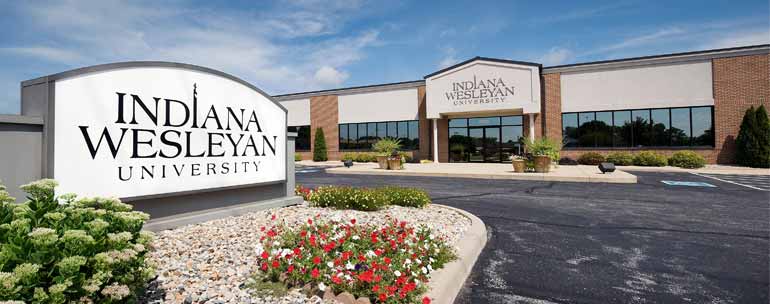
Indiana Wesleyan University is a private Christian university with its main headquarters in Marion, Indiana. It is a Christ-centered academic community that is committed to working together to create significant change in the world by developing students in character, scholarship, and leadership.
It was established as Marion College in 1920 and was transformed into a regional university in 1985. At present, it is home to more than 3,000 students who attend on-campus classes for undergraduate and graduate students.
- Bachelor’s in Addictions Counseling
- Bachelor’s in Human Services
- Master’s in Counseling – Clinical Addictions Counseling
- Master’s in Social Work
IWU is accredited by The Higher Learning Commission and is a member of the North Central Association of Colleges and Schools.
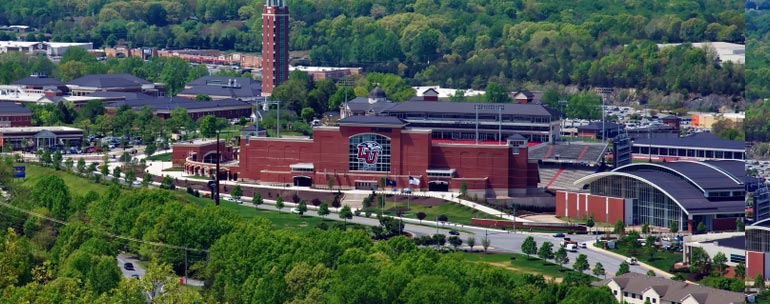
Liberty University is a private Evangelical Christian university located in Lynchburg, Virginia. It is one of the largest Christian universities in the world, with a total enrollment of more than 100,000.
The main campus stands on a massive 7,000-acre lot with over 300 buildings and structures. There are over 600 unique academic programs, which are offered both on-campus and online. Over 300 of these are residential programs, and over 400 are offered online.
- Bachelor’s in Psychology – Addictions and Recovery
- Doctorate in Psychology
- Doctorate in Psychology – Social Psychology
- Master’s in Addiction Counseling
Liberty is accredited by the Southern Association of Colleges and Schools Commission on Colleges.
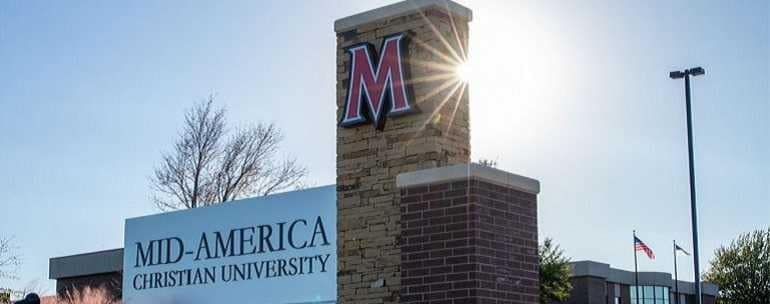
Mid-America Christian University is based in Oklahoma City, Oklahoma. This private liberal arts college used to be known as the Gulf Coast Bible College with head offices in Houston, Texas. Its 62-acre campus accommodates more than 2,500 students.
Its athletic teams are known as the Evangels. They compete in the National Association of Intercollegiate Athletics and National Christian College Athletic Association.
- MS in Counseling – Addiction and Substance Abuse Counseling
MACU is accredited by the Higher Learning Commission.
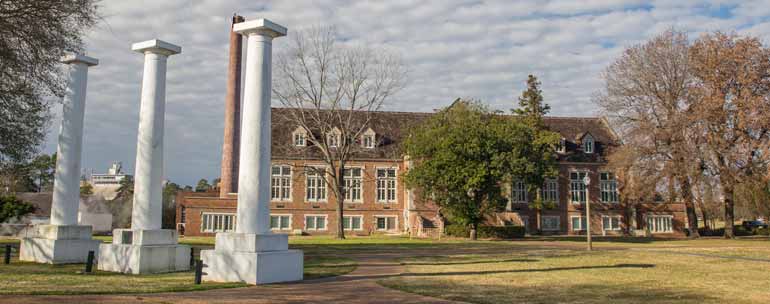
Northwestern State University is a private university in Natchitoches, Louisiana. It is a part of the University System of Louisiana and has other campuses in Leesville, Shreveport, and Alexandria. It was founded in 1884 with a mission to create, disseminate, and provide knowledge through teaching, research, and service.
The university participates actively in athletics and is a member of the National Collegiate Athletic Association (NCAA). It also engages learners in journalism and media publications through their weekly newspaper, student-run radio and TV stations, and literary magazine.
- Bachelor’s in Addiction Studies
- Bachelor’s in Psychology – Substance Abuse
NSULA is accredited by the Southern Association of Colleges and Schools Commission on Colleges.
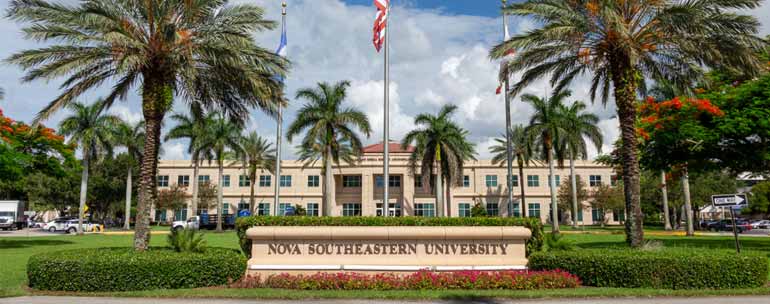
Although relatively new, Nova Southestern University has already left its fundamental mark on several generations of Davie and the Miami metropolitan area. It was established in 1964 as a private institute of advanced technology but became a full-fledged university in 1974.
Their main campus is located in Davie, which affords them a good respite from the distracting hecticness of Miami, while still remaining relatively well-connected. They serve nearly 5,000 undergraduates and over 15,000 graduate students.
- Bachelor’s in Human Services
- Master’s in Counseling – Applied Behavior Analysis
- Master’s in Counseling – Substance Abuse Counseling
NSU is accredited by the Southern Association of Colleges and Schools Commission on Colleges (SACSCOC).
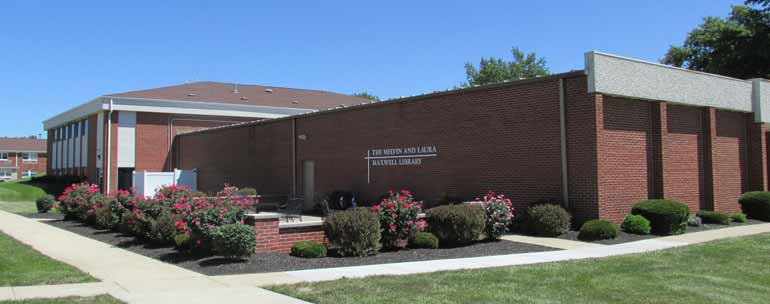
Ohio Christian University was known formerly as Mount of Praise Bible College and Circleville Bible College. It is located in Circleville, Ohio and was first established in 1947 by the Churches of Christ in Christian Union.
It was founded with the primary purpose to train ministers for the church, and over the years, it grew into a university that offers programs for a Bachelor of Arts, Associate of Arts, and Master of Arts. The university also offers online programs, adult learning programs, and weekend and evening classes for those who want more flexibility in their schedules.
- Bachelor’s in Human Services
- Bachelor’s in Substance Abuse Counseling
OCU is accredited by the Higher Learning Commission of the North Central Association of Colleges and Schools.
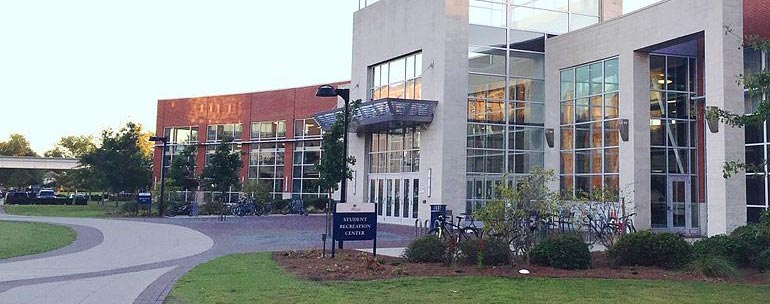
Popularly known as ODU, Old Dominion University is located in Norfolk, Virginia, where it serves nearly 25,000 students. This public university was established in 1930 as a division of the existing College of William and Mary.
Upon receiving a space grant and a sea grant in 1962, its management was given to its own independent Board.
The name of the university itself follows an old-school nickname of the state of Virginia. This cheeky spirit that combines old and new is shared by its students, its mascot, and its 18 different varsity teams.
- Bachelor’s in Human Services
ODU is accredited by the Southern Association of Colleges and Schools Commission on Colleges (SACSCOC).
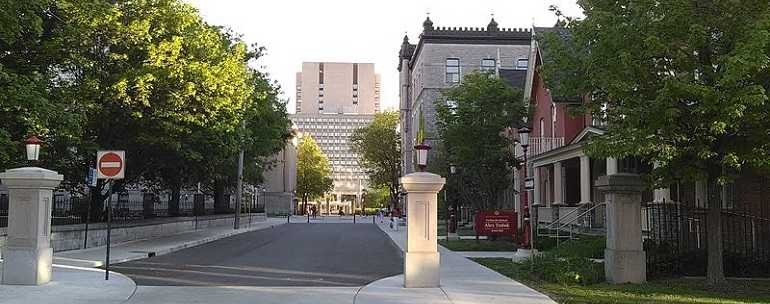
Ottawa University is a private Baptist liberal arts university in Ottawa, Kansas, dedicated to preparing its graduates for a life of significance building on the foundation of a Christ-inspired community.
Ottawa University appreciates diversity in all of its forms including age, ability, ethnicity, race, religion, sex, gender, and family background. From its founding in 1865, the university has grown into the institution that it is today, which caters to the educational needs of over 4,000 students in its residential campuses and online.
- Bachelor’s in Addiction Counseling
Ottawa University is accredited by The Higher Learning Commission.

Founded in 1890, Post University is a private university located in Waterbury, Connecticut. The university supports students with personal attention, flexible programs, and in-demand degrees. To cater to the changing needs of students, Post University offers degrees that can be fully completed online or through hybrid formats.
Students can also opt to study on-campus and experience an exceptionally tight-knit community, supportive of each other’s personal and educational growth. Whether on-campus or online, faculty and staff work to provide high-quality support to students who need advice and counseling.
- Bachelor’s in Human Services
- Master’s in Counseling and Human Services – Alcohol and Drug Counseling
Post University is accredited by the New England Commission of Higher Education.
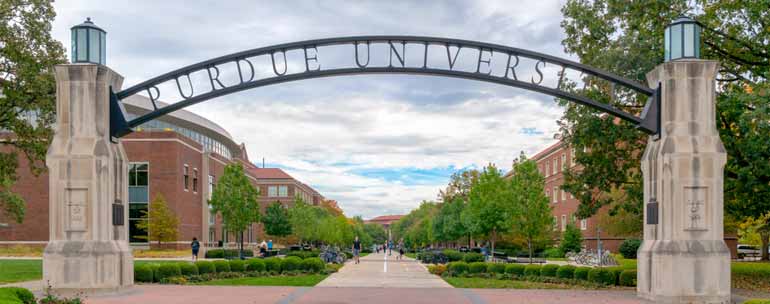
Purdue University is not just one of the flagship public universities in Indiana; they have the highly coveted position of being one of the most desirable ones in the U.S.
They have achieved this through a good teacher-student ratio, efficient management of their land, sea, and space grants, and a special commitment to funding their postgraduate programs and research activity.
They have over 43,000 students in their main campus, which is located in West Lafayette. Their football team, the Boilermakers, are the pride of the city, as they are one of the Big Ten of the NCAA Division I.
- Bachelor’s in Human Services – Youth/Family Services and Administration
- Bachelor’s in Psychology – Addictions
- Bachelor’s in Psychology – Applied Behavior Analysis
- Master’s in Psychology – Addictions
Purdue Global is accredited by The Higher Learning Commission (HLC).
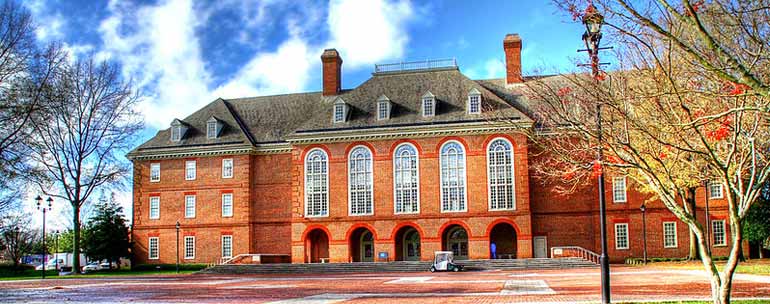
Regent University is a top-ranking private Christian University both online and on-campus by U.S. News & World Report. It was founded by Pat Robertson in 1977. With more than 135 study areas, students can surely find programs that suit their interests and abilities.
From its foundation, the university has focused on transforming the world through Christian leadership. This points to the university’s desire to create an impact to the lives of people from all around the world. Their core values are excellence, innovation, and integrity.
- Bachelor’s in Psychology – Clinical & Counseling Psychology
- Doctorate in Counseling & Psychological Studies – Addictions Counseling
- Master’s in Psychology – Addictions
Regent is accredited by the Southern Association of Colleges and Schools Commission on Colleges.
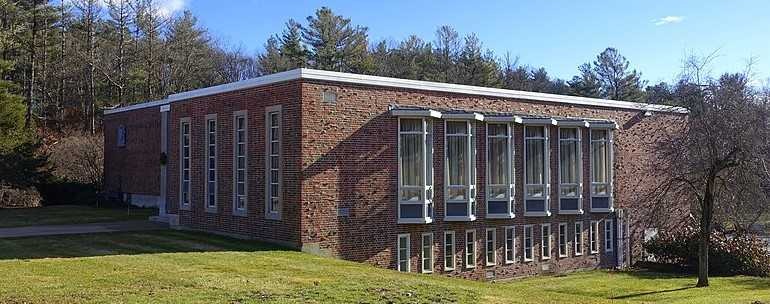
Regis College is a private university, founded by the Sisters of St. Joseph in 1927. It is located in Boston, Massachusetts and was originally founded as a women’s only college. It began accepting male students in 2007.
The university aims to develop each student as a whole person with its mission to build a more just and humane society through transformative education. It enrolls approximately 2,000 students per year, with nearly 1,000 being postgraduates.
- Master’s in Applied Behavior Analysis
- Master’s in Social Work
Regis is accredited by the New England Commission of Higher Education.
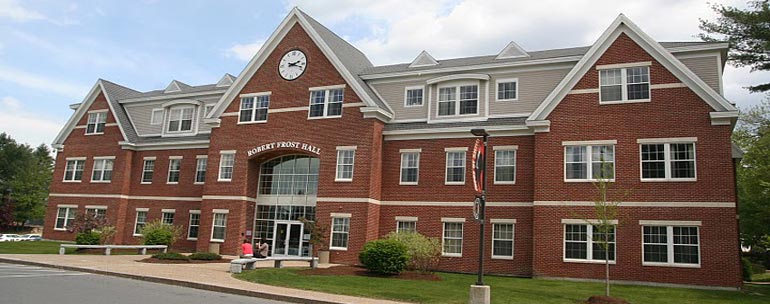
Southern New Hampshire University is a private, non-profit institution founded in 1932. Over the decades, the university has transformed from a school of accounting and secretarial science into an academic institution that offers more than 200 programs.
To keep up with the ever-changing needs of the growing market, SNHU works to ensure that students are provided with a learning environment that enhances their skills and knowledge in new technologies.
As it is a university built for people, the investment is primarily in the learners and their communities, using the power of education as a force to achieve social good.
- Bachelor’s in Human Services – Substance Abuse
- Bachelor’s in Psychology – Addiction
SNHU is accredited by the New England Commission of Higher Education (NECHE).

The Chicago School of Professional Psychology is a private non-profit university founded in 1979. As their name indicates, they are located in Chicago, Illinois, and they are devoted to postgraduate-level training for prospective psychologists, and for experienced psychologists looking to specialize in a subfield.
Their 4,500 students are all selected from a diverse cadre due to both academic achievement and professional goals. Special attention is paid to those who wish to contribute to the community or work with underprivileged groups.
- Bachelor’s in Psychology – Addiction Studies
- Doctorate in Applied Behavior Analysis
The Chicago School is accredited by the WASC Senior College and University Commission (WSCUC).
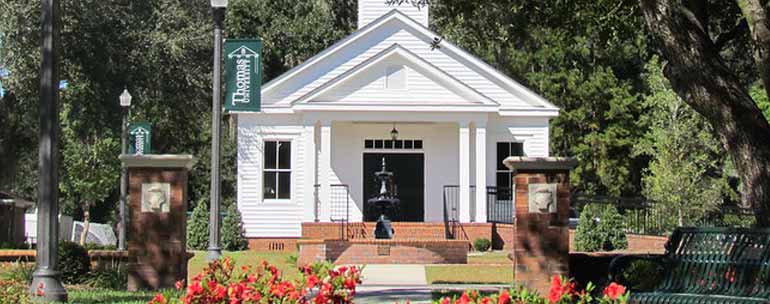
Thomas University is located in the historic and gorgeous city of Thomasville, Georgia. It is a non-profit university with a mission to provide a quality educational experience that explores and develops students’ potentials.
Its student body comprises of traditional students, members of the military, adult learners returning to college, and international students from all around the world. The university takes pride in supporting the military through its Center for Military Life, which was established to support military personnel and their families, providing them access to quality education.
- Bachelor’s in Rehabilitation Studies – Addictions
- Master’s in Clinical Rehabilitation and Mental Health Counseling
Thomas University is accredited by the Southern Association of Colleges and Schools Commission on Colleges (SACSCOC).
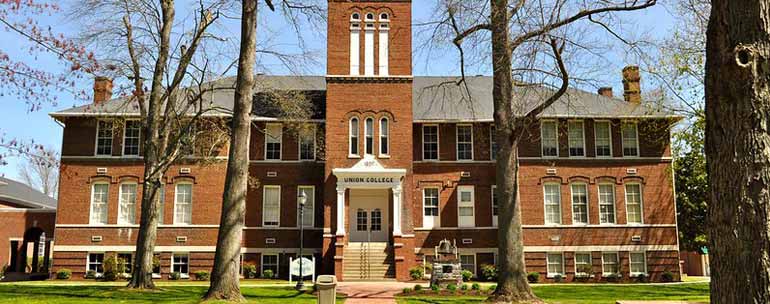
Union College was founded in 1975 and became the first institution of higher learning chartered by the New York State Board of Regents. Its curriculum places an importance in an interdisciplinary approach to the liberal arts, combined with humanities and social sciences with science and engineering.
The university offers a unique blend of personal attention from teachers, research, practical application of learning, international study, connecting ideas across disciplines, and high return of investment in terms of career success. Its mission is to provide a rigorous, holistic, and immersive liberal education that places emphasis on integration, innovation, inclusion, and reflection.
- Bachelor’s in Substance Abuse Counseling
- Master’s in Substance Abuse
Union College is accredited by the Southern Association of Colleges and Schools, Commission on Colleges.
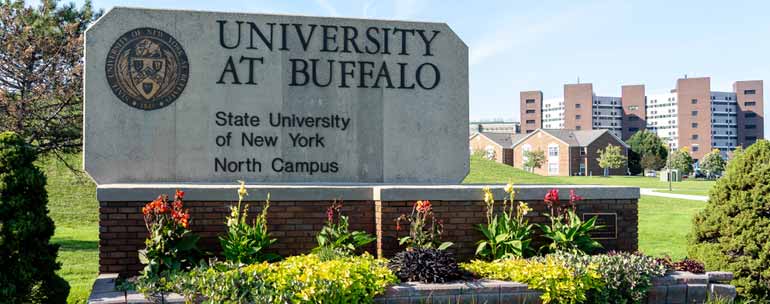
The State University of New York at Buffalo is a world-class public research university with campuses located in Buffalo and Amherst, New York. Consistently ranked as one of the world’s top universities by U.S. News & World Report and Kiplinger’s Best College Values, it has always been a top choice for students all over the world.
The university offers over 125 undergraduate degrees and over 320 graduate and professional programs. It works in partnership with other universities around the world, making great links for learning and opening opportunities for students to study abroad.
- Master’s in Rehabilitation Counseling
- Master’s in Social Work
The University at Buffalo is regionally accredited by the Middle States Commission on Higher Education.

The University of Central Arkansas was founded in 1907 in Conway, Arkansas. It was first known as the Arkansas State Normal School, the only normal school in the state at that time.
The university collaborates with campus community to create a diverse learning environment that drives innovative and challenging teaching and learning. Their mission is to deliver outstanding undergraduate and graduate education that remains relevant and responsive to the diverse needs of the community and the world.
They believe in the continuous and lifelong pursuit of learning and development for students, as well as the faculty and staff.
- Bachelor’s in Addiction Studies
UCA is a member of and accredited by the Higher Learning Commission (HLC).
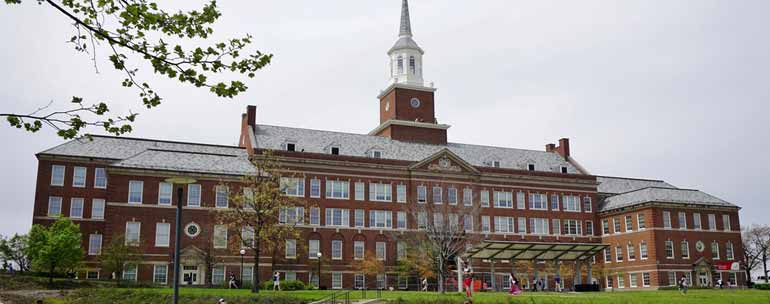
The University of Cincinnati is a private research university located in Cincinnati, Ohio. It was founded in 1819 and was then known as Cincinnati College, making it the oldest institution of higher education in Cincinnati.
It is designed to provide learners with real-world experiences balanced with educational excellence in whatever degree they pursue. With their average student-teacher ratio of 16:1, students are given personal attention and support by faculty to achieve their highest potential.
They offer more than 370 degree courses in undergraduate and graduate programs. Nearly 100 of these programs can be completed online with the same faculty and same standards.
- Bachelor’s in Substance Abuse Counseling
- Master’s in Foundations in Behavior Analysis
UC and all regional campuses are accredited by the Higher Learning Commission (HLC).
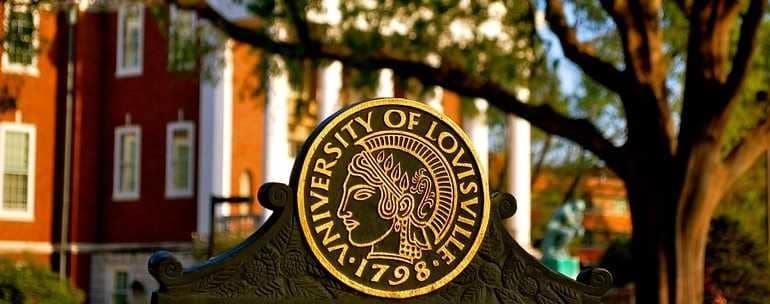
The University of Louisville is a state-supported university located in Louisville, Kentucky and is a part of the Kentucky State University System. It was founded in 1798 and was first known as the Jefferson Seminary.
At present, the university has three campuses: the Belknap campus, Health Sciences Center, and ShelbyHurst campus.
The university’s mission is to pursue excellence and inclusiveness in its work to educate the community through offering diverse undergraduate and graduate courses, practicing and applying research, and providing engaged service to improve the community’s way of life.
- Master’s in Social Work
The University of Louisville is accredited by the Southern Association of Colleges and Schools (SACS).

The University of Maine at Augusta is part of the University of Maine System. It is located in Augusta, Maine and was founded in 1965.
Its mission is to transform the lives of students from all backgrounds across the state and beyond through access to online and on-campus education, excellent student support, liberal arts programs, and civic engagement.
Aside from the main campus in Augusta, the university also serves students in its Bangor campus and university centers around the state.
- Bachelor’s in Mental Health & Human Services – Addiction Counseling
UMA is accredited by the New England Commission of Higher Education (NECHE).
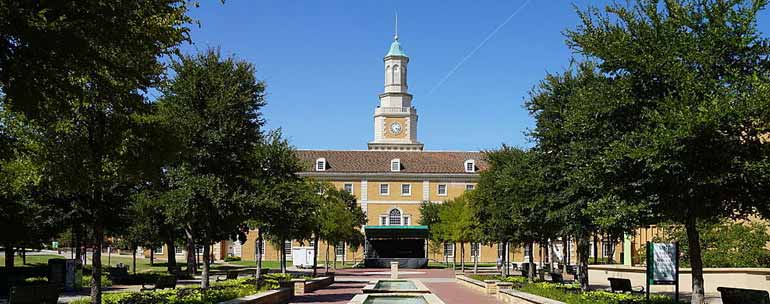
The University of North Texas is a public research university located in Denton, Texas. Considered one of the country’s largest universities, it offers 105 undergraduate degrees and over 120 graduate degrees. The university’s mission is to prepare students for successful careers in a rapidly changing world by creating a caring and creative learning environment.
The UNT campus has 15 residence halls that house students living on campus. Student life is diverse and dynamic, with many student activities to help build a sense of community. There are also different services available to all students to help them succeed in their academic endeavors.
- Master’s in Applied Behavior Analysis
- Master’s in Rehabilitation Counseling
UNT is accredited by the Southern Association of Colleges and Schools Commission on Colleges.
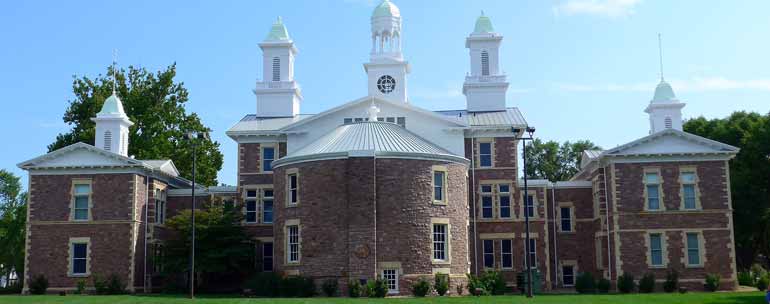
The University of South Dakota is a public research university in Vermillion, South Dakota. That also have off-campus centers and online courses to flexibly and conveniently cater to everyone’s learning needs anytime, anywhere.
These help learners to move closer to their educational goals by moving closer to them. All programs are taught by the same excellent faculty members whether they are taken online or on-campus. With affordable tuition fees, students can have more access to high-quality education without putting a strain on their financial capabilities.
- Bachelor’s in Addiction Studies
- Master’s in Addiction Studies
- Master’s in Administration – Addiction Studies
- Master’s in Social Work
Institutional accreditation by the Higher Learning Commission (HLC) provides assurance to prospective students, parents, and others that USD meets the agency’s clearly stated requirements and criteria.
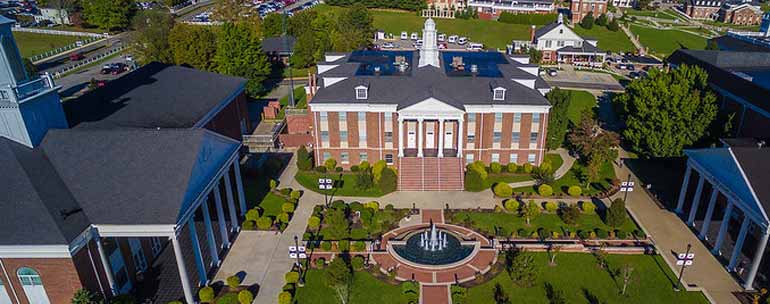
The University of the Cumberlands was founded in 1888 by Baptist ministers. It was known as Cumberland College until 2005. For more than a century, it has remained true to its mission of providing quality education while preparing students for lives as servant leaders.
With a personal approach to education, the success of every student is valued. The university consistently strives to meet the unique needs of learners, whether they are first time undergraduate students, adult learners, or professionals seeking further development.
The university serves more than 11,000 students nationally and internationally. It also supports athletes in different sports, including basketball, baseball, cheerleading, soccer, softball, volleyball, and many more.
- Bachelor’s in Human Services
- Bachelor’s of Applied Science – Human Services
- Master’s in Addiction Counseling
The University of the Cumberlands is accredited by the Southern Association of Colleges and Schools Commission on Colleges.
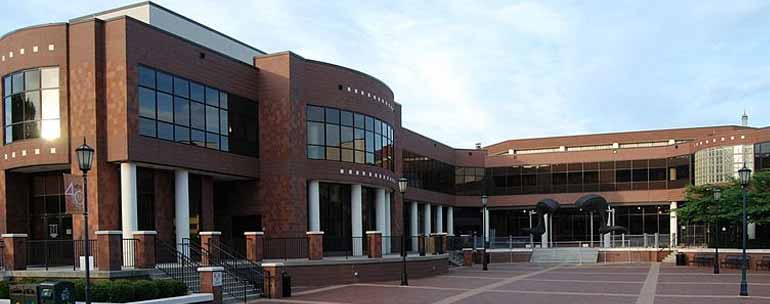
The Virginia Commonwealth University, established in 1838, is located in Richmond, Virginia. It is a public institution that developed from the medical department at Hampden-Sydney College and eventually grew into its own independent organization.
They have approximately 31,000 students. Although they continue to place a strong emphasis on the health sciences, they now possess 11 different schools that encompass a variety of disciplines. In addition, its students can access the VCU Health System both for their own education and for medical attention.
- Master’s in Addiction Studies
- Master’s in Social Work
VCU is accredited by the Southern Association of Colleges and Schools Commission on Colleges.
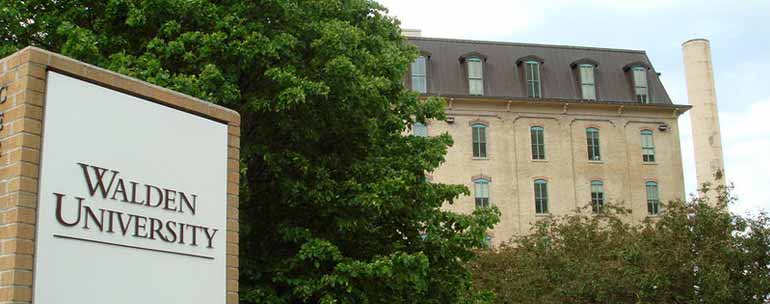
Walden University is a privately owned university that is registered as a Public Benefit Corporation. It was established in 1970 by a couple of teachers in New York who wanted to create a school for teachers and other working-class adult professionals who may want to earn their doctorates.
Because this is an online university, there is no campus, but their headquarters is in Minneapolis, Minnesota. Current data on their enrollment has the total student population at just about 50,000.
Walden has been accredited by the Higher Learning Commission since 1990.
- Bachelor’s in Human Services
- Bachelor’s in Psychology – Addictions
- Bachelor’s in Psychology – Human Services
- Master’s in Clinical Mental Health Counseling – Addiction Counseling
- Master’s in Social Work
Walden has been accredited by The Higher Learning Commission (HLC) since 1990.
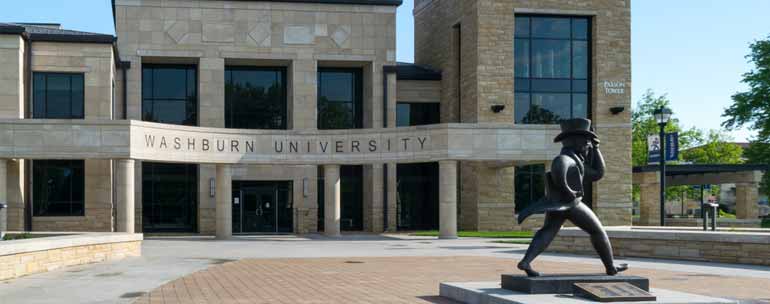
Washburn University is a premier educational institution nestled in the heart of Topeka, Kansas, the state’s capital city. It has a beautiful and picturesque 160-acre campus with excellent and modern facilities. There are more than 200 courses offered here, taught by faculty members who are experts in their fields.
More than a thousand Washburn students take part in internship programs each year, giving them relevant hands-on experience to help them gain the knowledge and skills necessary to help them succeed after graduation.
- Master’s in Human Services/Addictions Counseling
Washburn is accredited by the Higher Learning Commission.
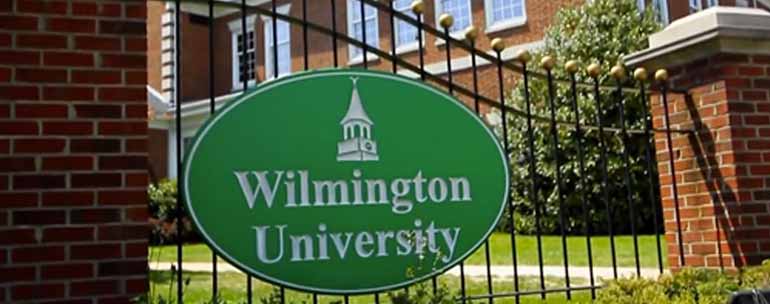
Founded in 1968, Wilmington University is a private, non-profit, doctoral research university with its main campus located in New Castle, Delaware. At Wilmington University, students are given the opportunity to pursue a career and become a leader. The student-faculty ratio is 17:1, so students are assured of personalized support from their tutors and instructors.
Their career-focused programs emphasize in-demand knowledge and skills, taught by teachers who are practitioners in their fields. To make pursuing a career easier, the university accepts up to 90% transfer of credits. With flexible course options, learners will surely find the perfect offer for their unique educational needs.
- Bachelor’s in Behavioral Science
- Master’s in Administration of Human Services
WilmU is accredited by the Middle States Commission on Higher Education.
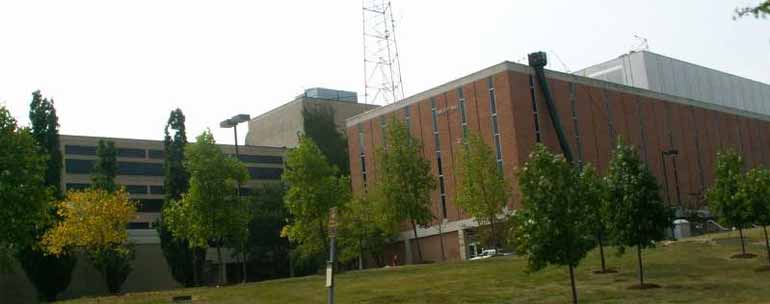
Wright State University is a public research university located in Fairborn, Ohio. It has an extension campus in Grand Lake St Mary’s. It is home to over 15,000 students and is offering more than 295 undergraduate and graduate degree programs. Their beautiful 557-acre campus is a wonderful sight, with lush forests and a biology preserve.
The university’s mission is to build the lives of their students and the community they serve. To achieve this, the university strives to build a solid foundation for student success, conduct research and creative endeavors that create a great impact to life, and empower students and faculty to develop holistically.
- Masters in Rehabilitation Counseling – Addiction Counseling
Wright State is accredited by the Higher Learning Commission (HLC).
Contact or research each school you’re interested in to learn more about their admissions requirements, exact curriculum, and enrollment costs.
How to Become a Substance Abuse Counselor?

To summarize, here are the next steps for you to take:
- Determine the exact degree you want to earn based on your career goals.
- Apply to 3-10 universities offer that degree.
- Secure financial aid.
Your studies can help you gain the skills necessary to help people resist and recover from their substance abuse addictions!

